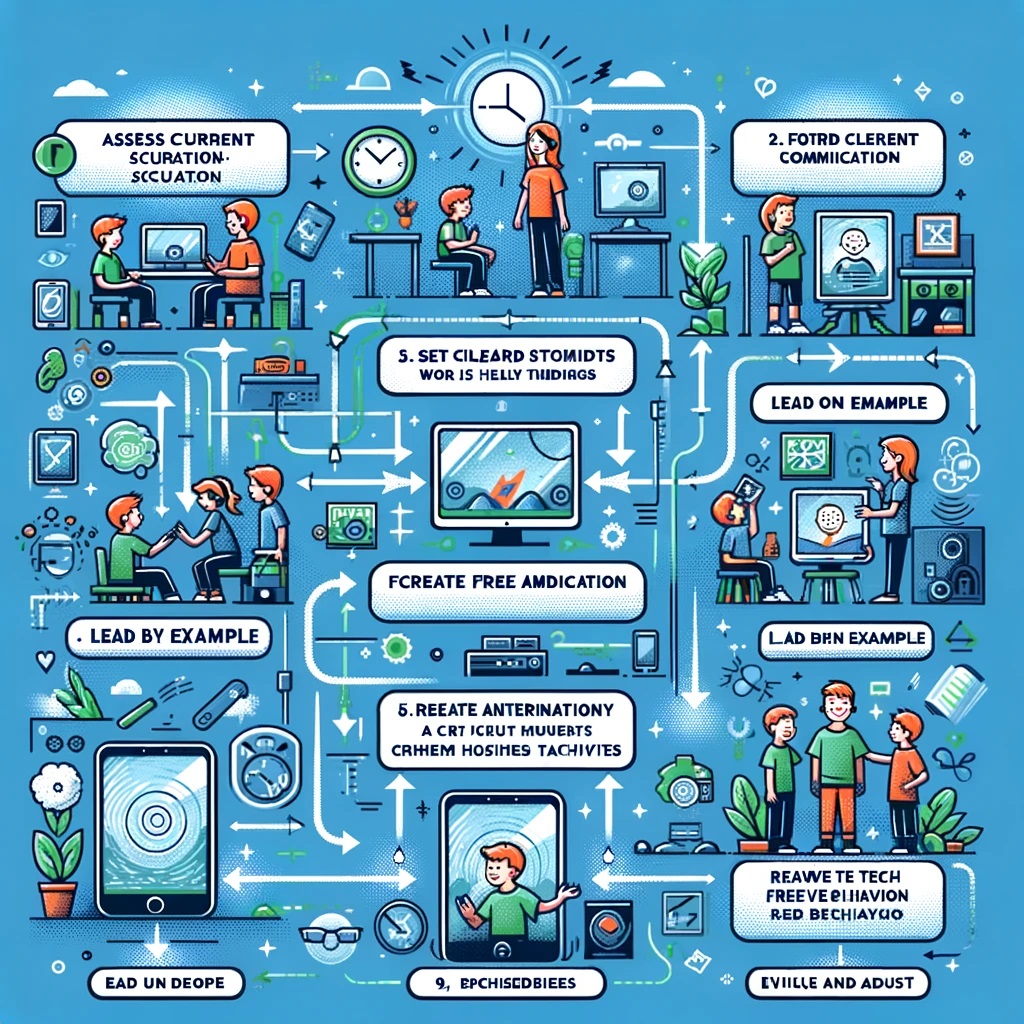Understanding the Brain's Role in Screen Time Addiction: Empowering Kids and Parents
In today’s digital era, screens have become an inextricable part of our lives, shaping the way we learn, entertain ourselves, and interact with others. For children, who are in the crucial stages of development, the allure of screens is particularly potent. This draws us to an important question: How can understanding the brain’s mechanisms help us control screen time more effectively? This article delves into the intricate workings of the human brain, highlighting the role of dopamine in screen addiction, and offers strategies to empower both children and parents to manage screen usage healthily.
The Brain's Reward System and Dopamine
At the heart of our interactions with screens—be it through gaming, social media, or binge-watching—is the brain’s reward system, specifically, a neurotransmitter called dopamine. Dopamine is often labeled as the “feel-good” chemical because it plays a pivotal role in how we experience pleasure and reward. When we engage in activities we enjoy, dopamine is released, providing us with a sense of satisfaction and reinforcing the behavior that led to that reward.
For children, whose brains are still developing, the immediate gratification and the vibrant stimuli provided by screens can lead to a higher release of dopamine. This creates a reinforcing loop: the more time they spend on screens, the more dopamine is released, and the more they want to repeat the behavior.
Understanding Addiction and Screen Time
Screen addiction in kids can often be traced back to this dopamine-driven feedback loop. Unlike adults, children have less developed prefrontal cortices—the part of the brain responsible for decision-making, impulse control, and understanding future consequences. This makes them more susceptible to addiction-like behaviors when it comes to screen time. Recognizing that it’s the brain’s response to dopamine, not a lack of willpower or discipline, that often leads to excessive screen use can be a game-changer in how we address this issue.
Empowering Kids with Knowledge
It’s crucial for kids to understand that their struggle with limiting screen time is not a personal failing but a natural brain response to rewarding stimuli. Educating them about how their brains work can empower them to make more informed decisions. Here’s how parents and educators can help:

Simplify the Science
Explain the concept of dopamine and the reward system in a child-friendly manner. Use analogies or stories to illustrate how their brain "lights up" with pleasure when they play a video game or watch their favorite show.
Promote Awareness
Encourage children to notice how they feel before, during, and after screen time. Do they feel happy and excited at first but maybe tired or irritable after? Drawing these connections can help them become more mindful of their screen use.


Offer Alternatives
Engage children in activities that also release dopamine but in a more balanced way. Physical activity, creative hobbies, and social interactions are excellent for this. These alternatives can satisfy the brain's need for dopamine without the negative consequences of excessive screen time.
Set Boundaries Together
Involve children in setting screen time limits. This inclusion can make them feel empowered and more likely to stick to these guidelines.


Model Behavior
Children learn a lot from observing adults. By managing your own screen time and prioritizing offline activities, you set a powerful example.
Conclusion
Understanding the brain’s role in screen time addiction is a powerful tool in combating this modern challenge. By educating both ourselves and our children about the science of dopamine and the reward system, we can foster healthier relationships with technology. It’s not about vilifying screens but about finding a balanced approach that acknowledges the brain’s influence on our behaviors. Empowering kids with this knowledge not only helps in managing screen time today but also equips them with insights into their behavior and decisions, a valuable skill that will serve them well beyond the digital realm.
FLOWCHART


